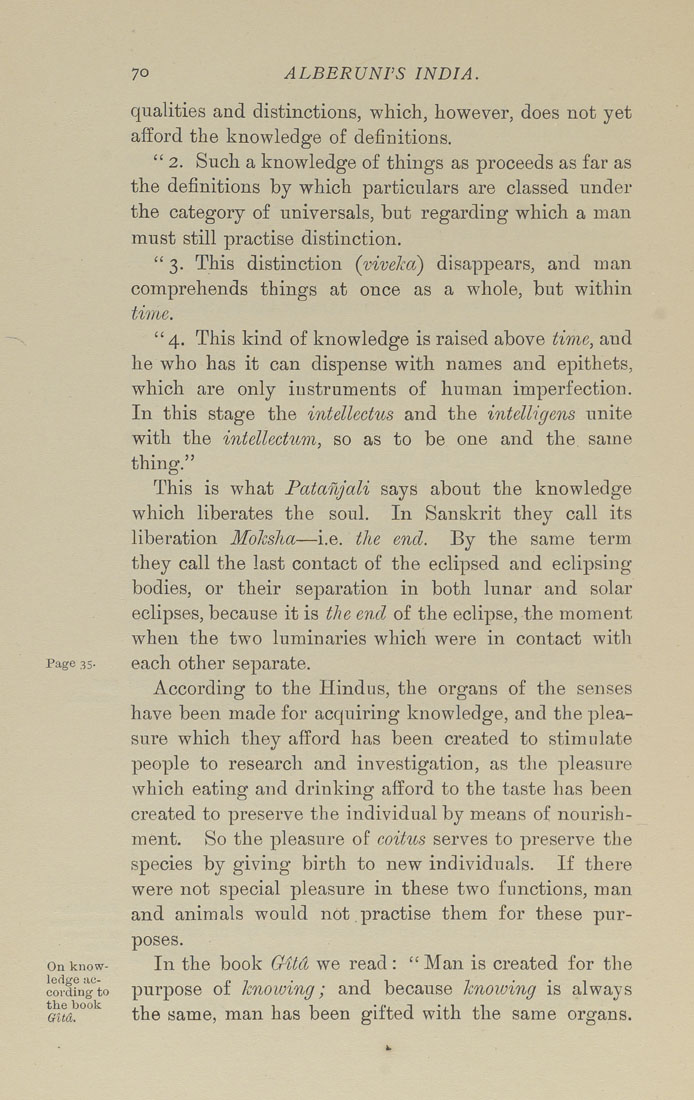Bīrūnī, Muḥammad ibn Aḥmad, Alberuni's India (v. 1)
(London : Kegan Paul, Trench, Trübner & Co., 1910.)
|
||
|
|
|
|
| Page 70 |

70 ALBERUNPS INDIA. qualities and distinctions, which, however, does not yet afford the knowledge of definitions. " 2. Such a knowledge of things as proceeds as far as the definitions by which particulars are classed under the category of universals, but regarding which a man must still practise distinction. " 3. This distinction (viveka) disappears, and man comprehends things at once as a whole, but within time. " 4, This kind of knowledge is raised above time, and he who has it can dispense with names and epithets, which are only instruments of human imperfection. In this stage the intellectus and the intelligens unite with the intellectum, so as to be one and the same thing." This is what Patanjali says about the knowledge which liberates the soul. In Sanskrit they call its liberation Moksha—i.e. the end. By the same term they call the last contact of the eclipsed and eclipsing bodies, or their separation in both lunar and solar eclipses, because it is the end of the eclipse, the moment when the two luminaries which were in contact with Page 35- each other separate. According to the Hindus, the organs of the senses have been made for acquiring knowledge, and the plea¬ sure which they afford has been created to stimulate people to research and investigation, as the pleasure which eating and drinking afford to the taste has been created to preserve the individual by means of nourish¬ ment. So the pleasure of coitus serves to preserve the species by giving birth to new individuals. If there were not special pleasure in these two functions, man and animals would not.practise them for these pur¬ poses. On know- In the book Gitd we read: "Man is created for the cording''to purposc of kuoiviug; and because knoioing is always G%td.°'^^ the same, man has been gifted with the same organs. |
| Page 70 |







